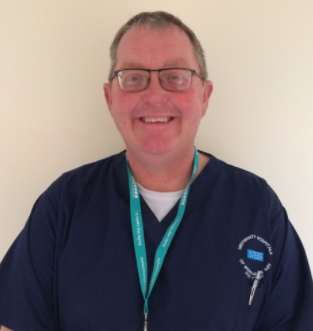What is a Learning Disability?
The term “Learning Disability (LD)” is used to describe a person who has developmental delay or intellectual disabilities, which are usually evident from birth or early childhood.
There are three core criterias, which must be met for the term learning disability to apply:
-
Significant impairment of intellectual function.
-
Significant impairment of adaptive and or social function, meaning an inability to cope with the daily demands of his/her environment and the expectations of age and culture).
-
Age of onset before adulthood.
Learning disability does not include:
-
The development of intellectual, social or adaptive impairments after the age of 18.
-
Brain injury acquired after the age of 18.
-
Complex medical conditions that affect intellectual and social / adaptive functioning: e.g. dementias, Huntington’s chorea.
-
Specific learning difficulties: e.g. dyslexia, literacy or numeracy problems, or delayed speech and language development.
The term “Learning Difficulties”, which is often used in educational services to describe people with specific learning problems, does not indicate that a person has a learning disability as defined above.
People with learning disabilities may present as having difficulty in:
-
communicating and expressing needs and choices.
-
understanding their diagnosis, treatment options or services available to them.
-
understanding the consequences their decisions can have on their health status.
- adapting to a hospital environment and the expectations of hospital staff
A hospital passport provides important information about patients care and communications needs, including personal details, the type of medication they are taking, and any pre-existing health conditions.
Here at UHMBT we are committed to ensuring we make all necessary reasonable adjustments to help make the Hospital experience as easy as possible for the person.
The Equality Act (2010) says all organisations have a responsibility to anticipate and provide the changes or 'adjustments' that the people with disabilities may require. Some examples of reasonable adjustments we make on a daily basis include;
- Providing the first/last/flexible outpatient appointment to meet a person's specific needs, this may be because you struggle in busy or noisy waiting rooms, or impact on your usual predictable routine is difficult for you.
- Organise double/longer appointments to give you time to understand the information and not feel rushed.
- Provide a quiet area for you to wait.
- Provide a Pager in our Emergency Departments to enable you to wait to see a Doctor away from the Department if you find it too overwhelming, we will then page when it is your turn to be seen.
- Enable family/carers to stay with you outside of the normal visiting times to help and support you during your stay in hospital.
- Provide information about your diagnosis, care and treatment in a format that you understand e.g. easy read, pictorial, verbal etc.
- Organise visits to the Hospital wards and departments to familiarise you with the environment and staff you are likely to meet when you come into Hospital.
This is not an exhaustive list of reasonable adjustments, there are lots of things we can do to ensure care and treatment is designed to meet your specific needs. Completing a Hospital Passport and detailing the reasonable adjustments with why you need us to make the changes is a great way of informing us of your needs, you can also contact Brian Evans, Matron for Learning Disabilities, Autism and Complex Needs to get help with planning your Hospital visit, he will be happy to help.
 Hi I'm Brian Evans, the Matron for Learning Disability, Autism and complex needs in Morecambe Bay Hospitals.
Hi I'm Brian Evans, the Matron for Learning Disability, Autism and complex needs in Morecambe Bay Hospitals.
You can contact me Monday - Friday, 9am - 5pm on:
Brian Evans (landline) 01229 406793
Brian Evans (mobile) 07813536877
Brian Evans (email) brian.evans@mbht.nhs.uk
I will come to talk to you about how you feel and what we can do to help when you are ill, in pain or scared.
Communication
I can help to explain things that might be confusing and help you to say what you want and need. This might include using symbols, photos, signing, as well as talking.
Appointments
I will help to make sure that:
- You get the information you need
- Your appointment is at the right time and long enough so that you don't feel rushed
- Help make sure the room is right for you
Helping with your visit
I can liaise with:
- You
- Family
- Advocate
- Carers
- Social workers
- Community Nurse
- Your GP
- Hospital staff
If you stay in hospital
I will try to make sure that:
- You get all the information you need
- The hospital staff get all the information they need to care for you
- You can visit the hospital before your treatment
- Your family or carers can stay with you if needed
- You are comfortable, safe and we are meeting your needs

